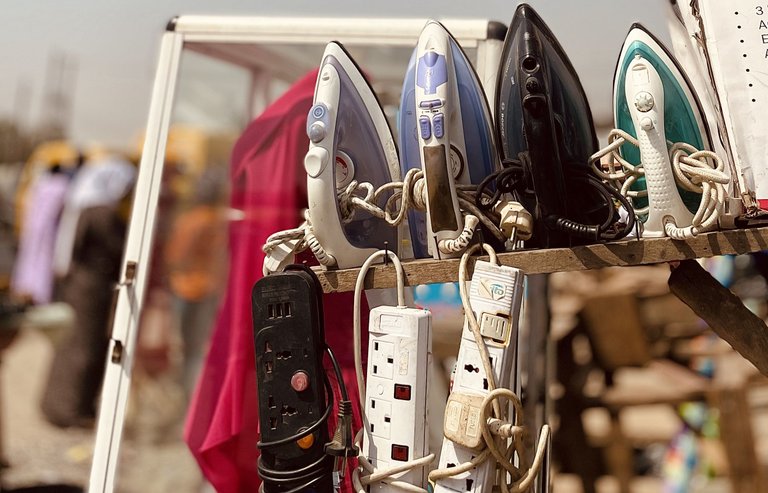
photography moi extraordinare
Art is one of the valuables that does not adhere to the supply and demand principle.
I mean, someone creates art, shills it in an exhibition, or most likely posts it on the internet, and then irrationally charges $2 million for it: no income potential, no guarantee of resale value, no productive value that solves any real-world problems, except a sentimental appeal to aesthetics.
I might be a skeptic, a philistine, or someone who is too broke to appreciate beauty, but art is not something I would be willing to invest in, unless it is a limited online NFT with a large marketplace of potential buyers.
But, again, it demonstrates that without demand, it is difficult to set a price. Scarcity and FOMO determine price, which is why currency notes that are supposed to be real money with exchangeable value rarely hold value in a post-apocalyptic setting.
What has value is what people desire. Although emotions, sentiments, and attachments can drive demand, I do not believe sentiment alone should be enough to determine the value of something.
Look at this...
I saw someone on Whatsapp post a picture of a baby lion and say they knew someone who was willing to sell it for more than $18,000.
I was surprised because lions cannot be eaten, and even if they could, this one is only three or four months old.
Now, you could argue that they can be put in zoos and used for income, but I doubt anyone would visit a zoo just to pay to see a three-month-old lion.
Even if you believe that lions are rare animals and that this rarity should drive their resale value, Nigeria is not a place where a regular person would purchase a lion.
Now, if this were Dubai or the Middle East, where the wealthy keep wild cats as pets, this person would have been in business.
Most inexperienced business people overestimates the value of their commodity
Now I want to believe they have overvalued their lions, and I doubt anyone will buy it. Initially, no one wants to keep a potentially dangerous pet that will require feeding but will not return any investment.
Now the only choice this person has is to shill their baby Lions to zoos in Nigeria, but even at that price, no zoo will be willing to pay $18k for a lion that they'll still need to nurture to adulthood before it can print income.
I believe that this is how businesses fail. People fail to identify who their target audience is. They value their products based on sentiments rather than their actual value, especially if the product or commodity has no unique value.
I wanted to respond to the person who posted this lion cub, but I believe they will eventually learn that if their cub is still on the market for a year and no one is buying it, they will either reduce the price or keep it.
Rarity is not demand.
Many rare items are not valuable, while others are rare but valuable. For example, consider a 1950 Chevrolet versus a 1950 painting or artwork.
The former can be used in movies, video shots, and as a store of value. It generates rental income, can be used for comfort, and will return your investment when you decide to sell.
I can not say this about a 1950 painting. Aside from the antique market, artwork is essentially useless and has no real-world value. I do not care if Leonardo Davinci created the painting; I am not taking it over a 1950 Chevrolet.
A rare commodity with no real value is limited. You can not easily cash in on them. You will have to wait for a specialized industry, and because demand is limited, the buyer may ultimately determine how much you sell.
A pig is actually worth more than the baby cub. Pigs are not uncommon, but their variety of consumption is astounding. Having one pig is likely to be far less rare than having a lion, but a person with the former can dictate how much they want to sell their pig because demand is normal, whereas the latter cannot.
Being universally valuable is how you get to set your own selling price.
Using rarity as a measure of value is a terrible phenomenon that some business people frequently employ.
Another reason some people fail in business is a lack of understanding of the principles of demand and supply, as well as the distinction between wants and needs, possibly in a post-apocalyptic era.
Rarity may come in handy because rare things will eventually become valuable because they are likely one-of-a-kind and can only be obtained by those who truly control resources.
Interested in some more of my works
Is it Easy To Make Money?
Nigeria: A Unique Business Market & Industry
Virtual Bank Apps In Nigeria: An Experience Of Gamification
How To Find The Next "BIG" Meme Coin
Personal Finance: Achieving Intentional "Saving" Goals
Playing The Survival Game: Human Nature In Introspection
"Un-PAYING" The Debt You Owe

Interested in some more of my works
Is it Easy To Make Money?
Nigeria: A Unique Business Market & Industry
Virtual Bank Apps In Nigeria: An Experience Of Gamification
How To Find The Next "BIG" Meme Coin
Personal Finance: Achieving Intentional "Saving" Goals
Playing The Survival Game: Human Nature In Introspection
"Un-PAYING" The Debt You Owe

This is the key sentence, even if something is rare, it has to serve a purpose to the ones trying to buy it, so the bidding to get it increases, as the base price.
Thanks.
Exactly. That's how I saw the pig and the situation of the lion. The fact that one is rarer than the other doesn't mean that everyone would want it especially if it doesn't really serve purposes to a vast majority of people.
A commodity is only worth what someone is willing to pay for it. In your example the pig is worth way more than a lion cub as the it 1950 Chevy or a the old painting. That's why I like silver and gold, someone will always want to buy it, but investing in a meme coin, not such a good move, you will lose your money!
Hahaha well when it comes to memes, I just don't think I'm financially independent enough to actually consider them. You're right silver and gold will always have value. I'll rather have a pig than a lion cub
!discovery 25
Thanks a million
The value of things is all subjective and I think alot of people just hoard things because they think that it will be more expensive in the future. It reminds me of what happened to the retro video game market. I think there was quite a bit of price manipulation, but after prices spiked, they never went back to the highs after.
Well sometimes things that are hoarded can be expensive especially if it's what s lot of people wants. But hoarding something because it's predicted that it'll go up is just not something that'll work.
Just like you said, "rare things will eventually become valuable", I would say that this is probably the reason why most people hoard products. By hoarding, product owners keep their products out of market (that's trying to make it rare) and then as the product begins to gain value, they sell.
Another thing a business or product owner should consider most times is location. Just like the Nigerian man with lion cub for sale, I guess he's probably in the wrong market area. If it were a dog, that's very common.
Thanks boss for sharing. There's really a lot to learn.
Rare things don't always become valuable and that's what I actually meant. A lion is rare, but only a few people wants them. A pig is common but many people wants it. The principle of demand and supply always works at least 90% of the time.
Interesting! NFTs Market is not liquid and most times I do wonder how people buy some Painting with over a million dollars tagging them unique and rare.
The NFT market is a unique place littered with items. It's still as profitable, it's just not as 2021.
This post was shared and voted inside the discord by the curators team of discovery-it
Join our Community and follow our Curation Trail
Discovery-it is also a Witness, vote for us here
Delegate to us for passive income. Check our 80% fee-back Program